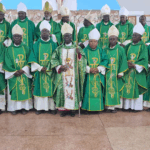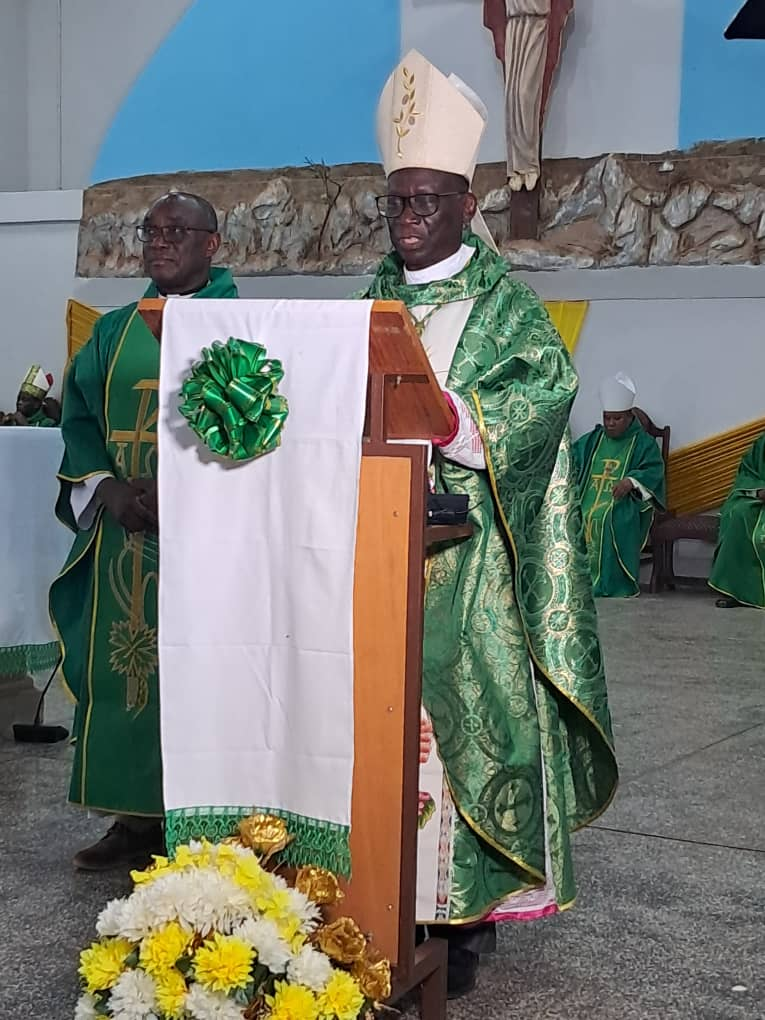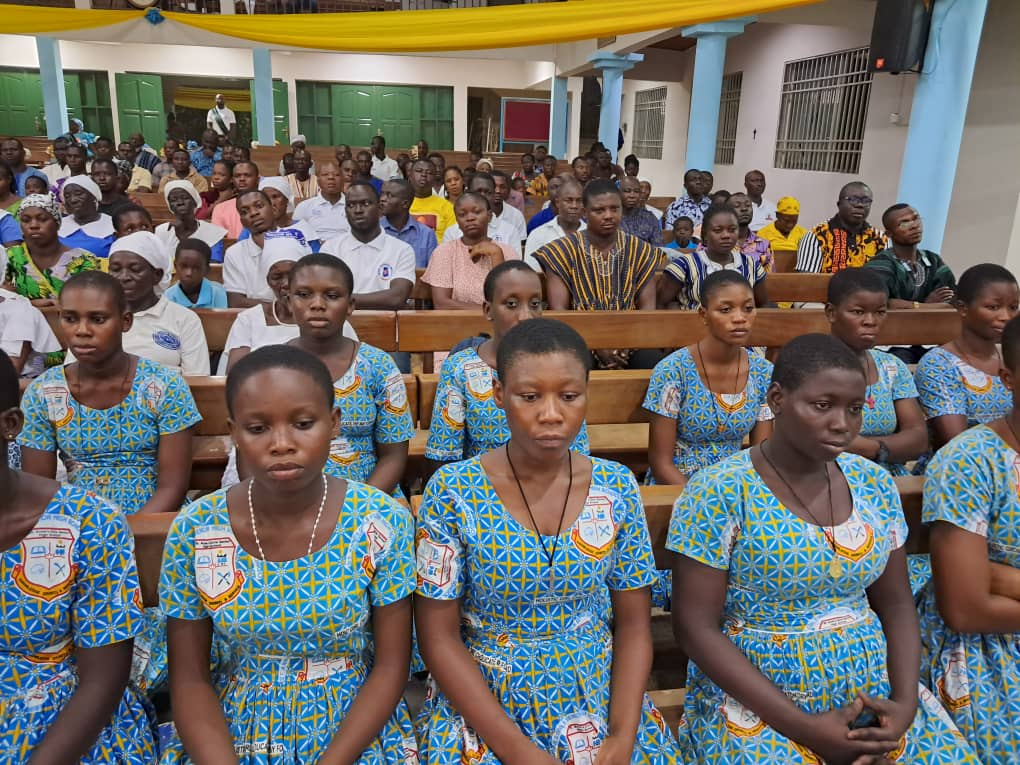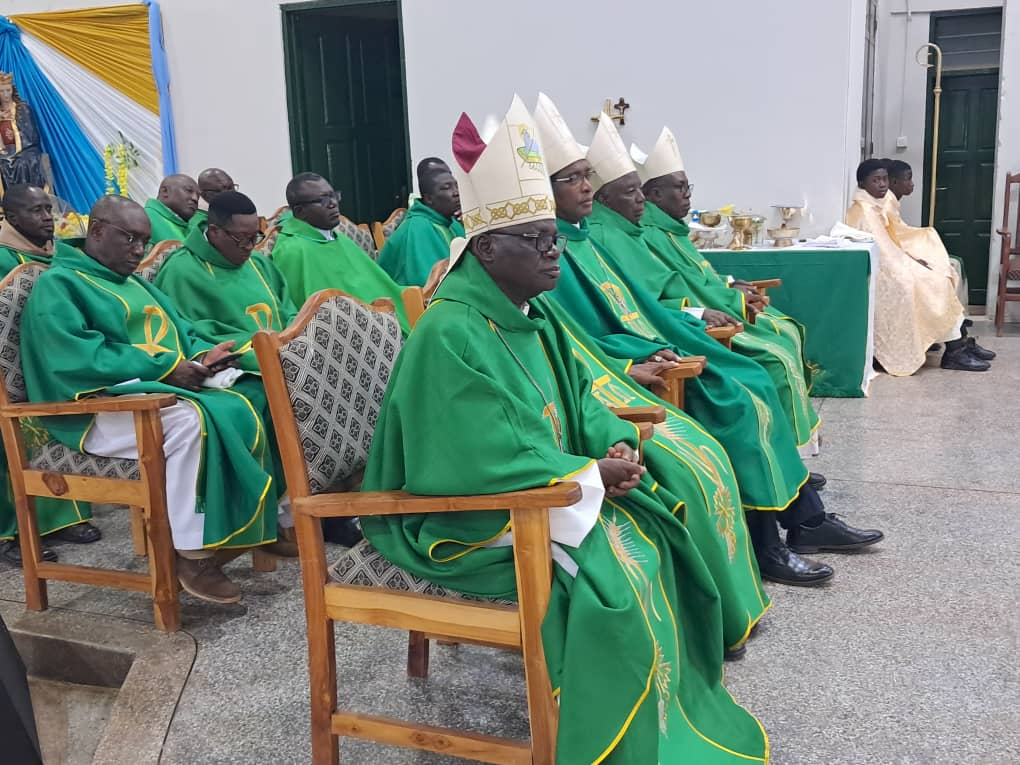
The Ghana Catholic Bishops’ Conference (GCB’sC) has reiterated its call on the government to reserve twenty per cent of student intake in Catholic pre-tertiary schools for Catholic children, a request, the conference insists, will ensure that faith-based formation remains accessible while advancing national development.
The President of GCB’sC, Most Revered Matthew Kwasi Gyamfi, who said this in a communique at the end of a seven day plenary assembly held in Damongo, Savannah Region under the theme, “A synodal Church at the service of justice and peace,” insisted that a just system must ensure student placement is free from bias or manipulation among others.
“To sustain the Church’s educational mission, we re-echo our call for government to guarantee at least 20% of student intake in Catholic pre-tertiary schools is reserved for Catholic children. This is to ensure that faith-based formation remains accessible while advancing national development,” the GCB’sC’s President said.
As part of this, the conference also encouraged the need for justice in the educational delivery system, and “Curricula should integrate academic excellence with civic education, religious instruction, and patriotic formation, equipping students to contribute ethically and responsibly to society,”.

According to the communique, education is the crucible in which peace, civic virtue, and national cohesion are forged, and Catholic schools have long shaped Ghana’s moral and intellectual conscience, generally forming citizens who embody truth, fairness and service to the common good.
“More so, justice in education demands equitable and transparent partnership,” the statement read.
On safeguarding the environment, the Ghana Catholic Bishops’ Conference acknowledged the government’s efforts in establishing the National Anti-Illegal Mining Operations Secretariat [NAIMOS].
However, they expressed concerns over the devastation effects of galamsey on the environment and called on President John Dramani Mahama to announce a more radical action against the menace.
“Declaration of a state of emergency in high-risk mining zones, swift prosecution of perpetrators regardless of political affiliation , and the full reclamation of lands ravaged by illegal /irresponsible mining and the establishment of transparent reporting on water, forest, and food-safety indicators,” Most Rev. Gyamfi explained.
In linking the environment with the church, the conference bemoaned the fast degradation of Ghana’s ecological degradation in the face of illegal mining, explaining that the ecological degradation in Ghana is both a profound moral crisis and a spiritual challenge.

“A synodal Church recognises creation not as a commodity to be exploited but as a convenantal partner deserving of respect and care.”
“Recent data shows that Ghana has lost over 5,252 hectares of forest reserves due to illegal mining [galamsey] in 2025 and Forty-four [44] out of Two hundred and Eighty-Eight [288] forest reserves are now degraded,” GCB’C stressed.
The conference was more worried that about seventy-five per cent [75%] of the nation’s rivers are currently polluted , primarily by mercury and cyanide used in unregulated and irresponsible gold extraction.
The President of the Conference, Most Rev. Matthew Kwasi Gyamfi, on behalf of the conference, commended some of Chiefs and Queen Mothers for their courageous stand, by protecting their communities from destruction of galamsey and urged all others to emulate their good example.

The conference was graced by the Apostolic Nuncio to Ghana, Most Rev. Julien Kabore, the Savannah Regional Minister and the West Gonja Municipal Chief Executive, Salisu Be-Awuribe and Yakubu Yussif Castro.
The regional minister commended the conference of its long-held reputation and collaboration roles in development, especially in the areas of health and education deliveries in Ghana.